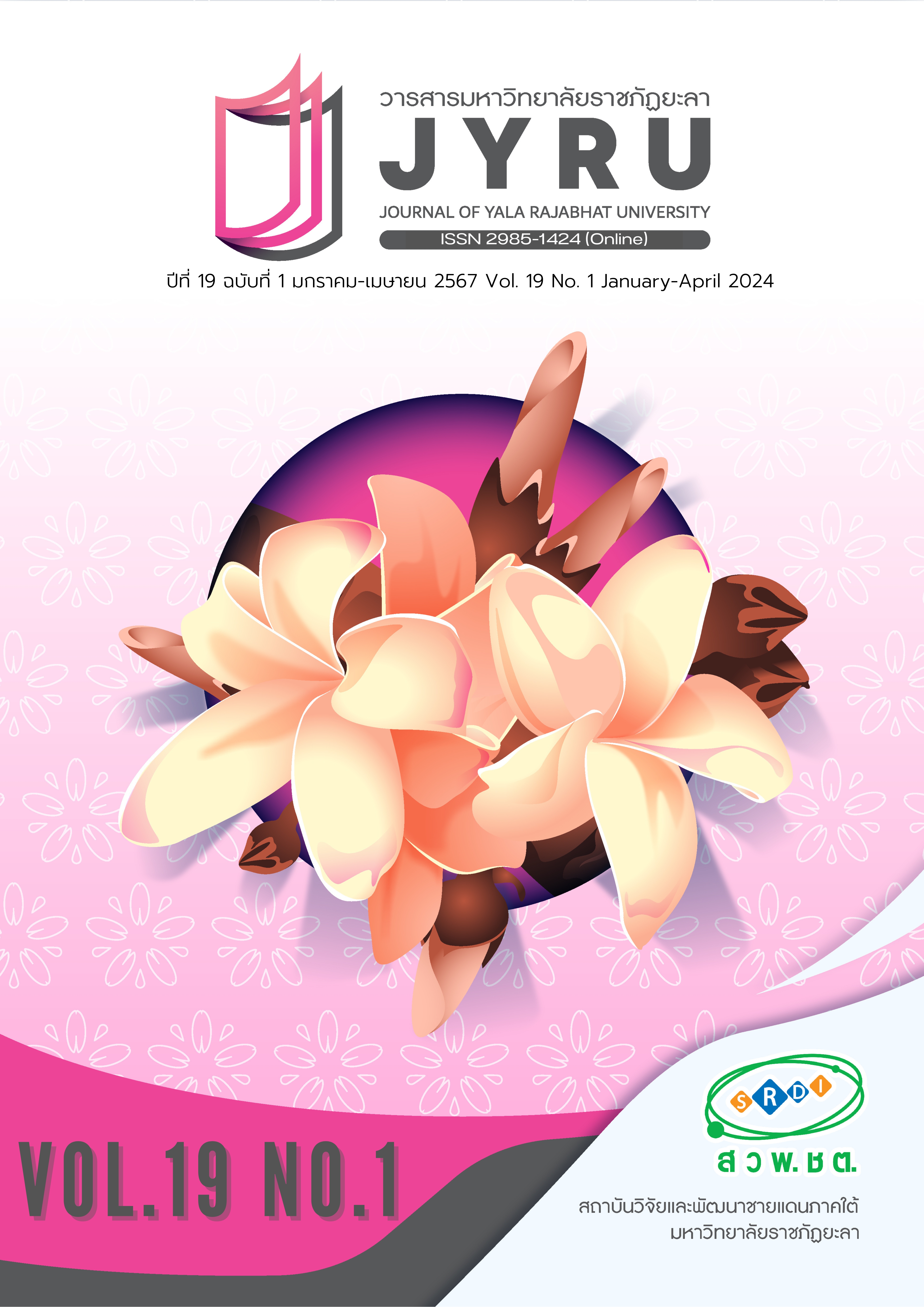แนวทางการพัฒนาการจัดการเรียนรู้วิทยาศาสตร์แบบฐานสมรรถนะเชิงรุก : สภาพปัจจุบัน ปัญหา และความต้องการของครูวิทยาศาสตร์
Main Article Content
บทคัดย่อ
การจัดการเรียนรู้ฐานสมรรถนะเป็นประเด็นสำคัญในแวดวงการศึกษา แต่ที่ผ่านมามีงานวิจัยที่ศึกษาการพัฒนาการจัดการเรียนรู้วิทยาศาสตร์ฐานสมรรถนะเชิงรุกน้อยมาก ดังนั้นงานวิจัยนี้จึงมีวัตถุประสงค์เพื่อ (1) เพื่อศึกษาสภาพปฏิบัติ ปัญหา และความต้องการในการจัดการเรียนรู้วิทยาศาสตร์แบบฐานสมรรถนะเชิงรุกของครูผู้สอนในจังหวัด ลพบุรี สระบุรี และสิงห์บุรี (2) เพื่อหาแนวทางในการพัฒนาครูเพื่อจัดการเรียนรู้วิทยาศาสตร์แบบฐานสมรรถนะเชิงรุก ผู้วิจัยเก็บข้อมูลจากแบบสอบถาม ข้อมูลที่ได้มาจากโรงเรียนระดับชั้นประถมศึกษา ถึงระดับชั้นมัธยมศึกษาตอนต้น จากครูจำนวน 310 คน ผลการวิจัย พบว่า (1) ครูมีระดับการปฏิบัติและความต้องการพัฒนาการจัดการเรียนรู้วิทยาศาสตร์ฐานสมรรถนะ เชิงรุกอยู่ในระดับมาก และมีปัญหาอยู่ในระดับปานกลาง แสดงให้เห็นว่า ครูได้จัดการเรียนรู้ตามแนวสมรรถนะเชิงรุกอยู่แล้ว แต่ก็ยังคงมีความต้องการที่จะพัฒนาแนวทางการปฏิบัติให้ดียิ่งขึ้น (2) แนวทางการพัฒนาครูผู้สอนวิทยาศาสตร์เพื่อการจัดการเรียนรู้ตามแนวสมรรถนะแบบเชิงรุก ควรมุ่งไปที่ความชัดเจนเกี่ยวกับสมรรถนะทางวิทยาศาสตร์ 3 ด้าน ที่เน้นกระบวนการสืบเสาะเป็นสำคัญ โดยแนวทางการพัฒนาครูประกอบไปด้วย การให้ครูได้สวมบทบาทเป็นผู้เรียน กลยุทธ์ด้านกลุ่มความร่วมมือ การสะท้อนความคิดในการปฏิบัติ การอธิบายแนวคิดและทฤษฎีการเรียนรู้ที่อยู่เบื้องหลังพฤติกรรมการจัดการเรียนรู้
Article Details

อนุญาตภายใต้เงื่อนไข Creative Commons Attribution-NonCommercial-NoDerivatives 4.0 International License.
บทความ ข้อมูล เนื้อหา รูปภาพ ฯลฯ ที่ได้รับการเผยแพร่ในวารสารมหาวิทยาลัยราชภัฏยะลานี้ ถือเป็นลิขสิทธิ์ของวารสารมหาวิทยาลัยราชภัฏยะลา หากบุคคลหรือหน่วยงานใดต้องการนำทั้งหมดหรือส่วนหนึ่งส่วนใดไปเผยแพร่ต่อหรือกระทำการใดๆ จะต้องได้รับอนุญาตเป็นลายลักษณ์อักษรจากวารสารมหาวิทยาลัยราชภัฏยะลาก่อนเท่านั้น
เอกสารอ้างอิง
Bennett, N. & Lemoine, G. James. (2014). What VUCA really means for you. [Online]. Retrieved June 20, 2023, from: https://hbr.org/2014/01/what-vuca-really-means-for-you.
Jerrim, J., Oliver, M. & Sims, S. (2022). The relationship between inquiry-based teaching and students’ achievement. New evidence from a longitudinal PISA study in England": Corrigendum. Learning and Instruction, 80(1), 1-10.
Khumraksa, B. (2021). The use of research-based learning to promote an active learning in science learning. CMU Journal of Education, 5(1), 58-74. (in Thai)
Ladachart, L. & Ladachart, L. (2019). Teaching and learning that emphasizes scientific competencies. Journal of Education Khon Kaen University, 42(4), 1-19. (in Thai)
Malisorn, Y. & Ruangmontri, K. (2020). The development of teacher competency about active learning management in school under Mahasarakham primary educational service area office 2. Journal of MCU Nakhondhat, 7(8), 230-243. (in Thai)
National Research Council. (2000). Inquiry and the national science education standards: A guide for teaching and learning. Washington, DC: National Academies Press.
Office of the National Economic and Social Development Council. (2015). National strategy 2018 – 2037 national strategy secretariat office of the national economic and social development board. [Online]. Retrieved June 20, 2023, from: https://rsr.mnre.go.th/th/news/detail/35004.
Organization for Economic Co-operation and Development. (2018). PISA for development assessment and analytical framework: Reading, Mathematics and Science [Online]. Retrieved June 2, 2023, from: http://dx.doi.org/10.1787/9789264305274-en.
Pečiuliauskiene, P., Kaminskiene, L. & Lehtinen, E. (2023). Science teachers’ collaborative innovative activities: the role of professional development and professional experience. Humanit. Soc. Sci. Commun., 10(234), 1-10
Pinthong, S., Pimsarn, N. & Jenkwao, S. (2022). Developing guidelines of learning management competencies for science teachers in secondary school, Journal of Education and Social Sciences, 18(2), 107-114.
Roehrig, G., Anwar, T., Ellis, J. & McFadden, J. (2022). Exploring reflective practices of beginning science teachers in an online induction program. Technology and Teacher Education, 22(2), 353-381.
Saikumpa, S. (2021). Competency-based active learning management affecting learners' competencies in the secondary educational service area office Bangkok 2. Master’s Thesis. Srinakharinwirot University. (in Thai)
Shekhar, P. & Borrego, M. (2017). After the workshop: A case study of post-workshop implementation of active learning in an electrical engineering course" Transactions on Education, 60(1), 1-7.
Suh, J. & Park, S. (2017). Exploring the relationship between pedagogical content knowledge (PCK) and sustainability of an innovative science teaching approach. Teaching and Teacher Education, 64, 246-259.
The Institute for the Promotion of Teaching Science and Technology. (2014). Mathematics, reading and science. What can students know and what can they do. Bangkok: Aroon Kranpim. (in Thai)
The Institute for the Promotion of Teaching Science and Technology. (2018). Assessment PISA 2015 reading science and mathematics: excellence and equality in education. Bangkok: Success publication. (in Thai)
Winkelmann, K., Baloga, M., Marcinkowski, T., Giannoulis, C., Anquandah, G. & Cohen, P. (2015). Improving students’ inquiry skills and self-efficacy through research-inspired modules in the general chemistry laboratory. Journal of Chemical Education, 92(2), 247–255.


